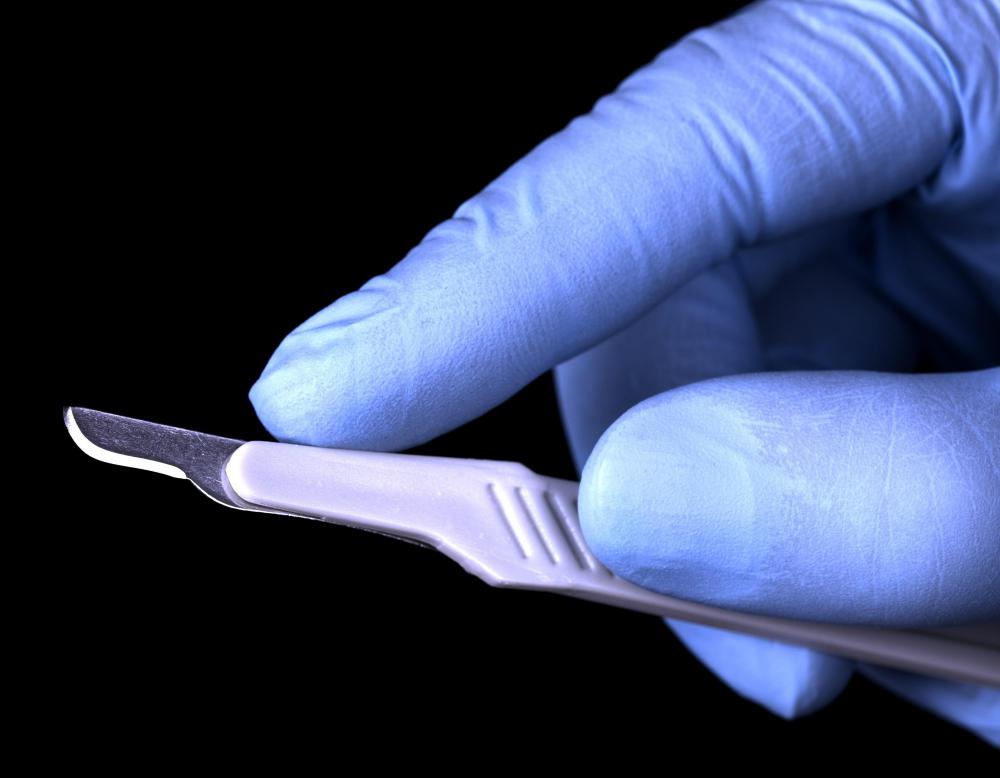At WiseGEEK, we're committed to delivering accurate, trustworthy information. Our expert-authored content is rigorously fact-checked and sourced from credible authorities. Discover how we uphold the highest standards in providing you with reliable knowledge.
What are the Treatment Options for Gender Dysphoria?
Gender dysphoria, also known as gender identity disorder, is a term given when a person does not feel comfortable identifying as the gender that was assigned at birth. This condition is clinically labeled as a disorder, although that term is surrounded by much controversy, especially considering that research suggests that brain chemicals may actually be involved. Treatment for gender dysphoria varies according to the age of the patient and may include hormone therapy and eventually gender-reassignment surgery, although psychological counseling is recommended for people of all ages who question their gender identities.
Gender dysphoria can occur at any age, although it is commonly felt in children. For instance, a male child may become convinced that he is really a girl, in spite of having the anatomy of a boy. He may then attempt to dress as a girl and behave in ways that are more socially acceptable for girls than boys. Many children will no longer experience these feelings after puberty, while others will continue to struggle with gender identity issues.

A young child who has been diagnosed with gender dysphoria but has not yet reached puberty will have a different treatment plan than older children and adults. This is due to the fact that this condition cannot be accurately confirmed until after puberty. For those in this age group, psychological counseling is used to help the child, as well as the child's family, cope with the conflicting emotions and social stigmas of feeling trapped in the wrong body.

Children with gender dysphoria who have reached puberty but are less than the age of 16 may undergo what is known as endocrine therapy. This type of therapy works by giving the child hormones that will help to suppress some of the natural hormones produced during and after puberty. Endocrine therapy helps to slow the development of reproductive organs and other physical features common to the gender assigned at birth.

After the patient with gender dysphoria has reached the age of 16, additional hormone therapy may be offered. Cross-sex hormones can help the patient develop more of the characteristics of the gender that he feels most closely expresses how he identifies. Doctors and therapists may then begin to discuss the possibility of gender-reassignment surgery, although most with gender dysphoria will not take this step.

Adults who have a confirmed diagnosis of gender dysphoria will often be referred to a gender identity clinic. This type of clinic provides mental and emotional support and also helps the individual learn to look and behave more like the gender that is most comfortable for him or her. Support groups are also available for family members who wish to be supportive in the new gender role. A small percentage of patients will decide to undergo gender reassignment surgery to look and feel more like the person they have always known themselves to be.
AS FEATURED ON:
AS FEATURED ON:














Discussion Comments
@pastanaga - I agree, but the issue is how far to take it when children are still children. A lot of gender identity disorder specialists recommend that they be started on hormones as they hit puberty, so they never go through developing in the wrong way.
This has long term consequences. And I'm torn about it, because on the one hand, I don't think anyone should make these sorts of choices for their children, but on the other hand perhaps it should be treated like any other medical condition and treated before it becomes irreversible.
@Ana1234 - For one thing, I don't think families should be treating any child substantially different based on their gender identity, perceived or otherwise. If a child asks for a doll, then give them a doll. If they ask for a toy truck then give them a truck. If they want to paint their bedroom blue, then go ahead and let them. If they want to wear dresses, then let them wear what they want.
Children should have autonomy over that sort of thing anyway. If you play baseball with your little girl, you're being a good parent, not encouraging her to be a boy.
And if they want to change their name, then that's fine too. My nephew wanted to be called Batman for weeks and we all did it. Eventually he confessed that he wasn't really Batman. I imagine a little girl who happens to be in a boy's body would never feel the need of a similar confession.
The problem is that it's so difficult to know whether nature or nurture is the influence in younger children. There are plenty of kids who just want to playact at being something different than what they are. If the family takes them too seriously and starts treating them like the gender identity they claim to have, it might end up influencing them to continue.
In cases where it happens in spite of being treated like the opposite gender, I think gender dysphoria should absolutely be taken seriously. But children are so vulnerable to influence, I just don't see how they can know that about themselves.
Post your comments